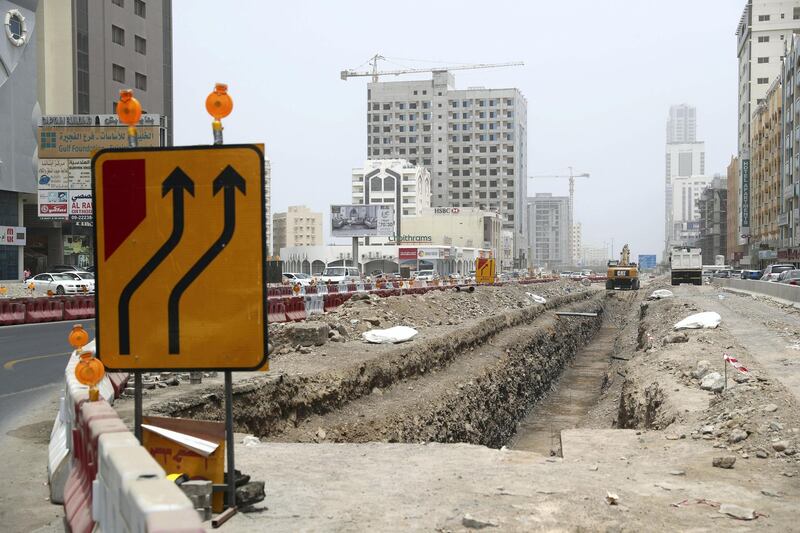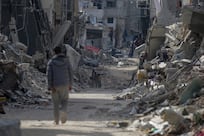A Dh250 million road project in Fujairah set to drive up trade and cut congestion is en route for completion next year.
The upgrade of Hamad Bin Abdullah Road - which got underway in early 2017 and is set to be finished next August - has been welcomed by residents and traders alike.
They hope it will attract more investors to the area - a rich reward after more than a year of roadwork woes.
The major project will double lanes on the arterial road from three to six and replace a roundabout with three sets of traffic lights and two tunnels.
Business managers said that detours and road closures during the improvement works have affected their sales as many customers have found if difficult to reach their shops. But they are hopeful the upgraded road will provide a big business boost.
“It’s a great initiative that will definitely upgrade our everyday commute experience and will help to attract more investors and ease traffic. The road was quite old and needed such improvement and we are excited to see it finalised,” said Jahirul Islam, a 41-year-old Bangladeshi manager of a perfume shop at Fujairah Trade Centre.
______________
Read more:
More needs to be done to improve UAE roads, FNC members say
Fujairah residents wait for renovation work on Corniche to commence
______________
“When they started working on the road in front of the centre, customers got confused due to the closures and didn't know how to enter the centre, which affected our sales.
“But it’s not an ongoing problem and we hope that it will finish on time,” he said.
Another said that the roadworks made it difficult to find a parking space in front of his shop.
“They blocked the road and removed all the parking lots in front of the shop, and that affected our sales,” said Imran Survi, an Indian assistant manager working at a furniture shop located on the side of Hamad bin Abdullah Road.
An Emirati resident said that he was 'proud" of the vision of decision-makers in the emirate.
“It’s something we are all proud of. I was born and raised in Fujairah, and seeing this project develop makes me much prouder of the emirate's accomplishments and future vision,” said Saeed Al Yamahi, 46.
“It will smooth traffic around the emirate and cut the journey time, while the tunnels will provide us and the visitor with a high standard road experience that will definitely impact the emirate’s economy and bring more investors,” he said.
The project is a key part of the Ministry of Infrastructure Development investment programme.
According to a feasibility study conducted by the ministry, the road has 1,300-1,500 vehicles during peak hours and up to 18,000 vehicles every day in each direction.
“Twenty-six per cent of the road is completed now, while the aim of the project is to restructure, expand and modernize the road, which is considered the main road of the emirate. The project will increase the road capacity, easy traffic and increase road safety for both motorists and pedestrians,” said Eng Ahmad Al Hammadi, director of the roads department at the ministry.
“Along the road construction we will include a new rain drainage network that will reduce floods, service roads and pedestrian crossings,” he said.
In 2016, a Dh7 billion budget for northern emirates infrastructure projects was approved by Sheikh Mohammed bin Rashid, Vice President and Ruler of Dubai.
The projects include approvals for housing aid, the building of new residential complexes, roads, schools, health centres and government buildings.
In the same year, the Ministry of Infrastructure Development approved eight improvement projects worth Dh440 million for roads and government buildings in Umm Al Quwain and Ras Al Khaimah.






